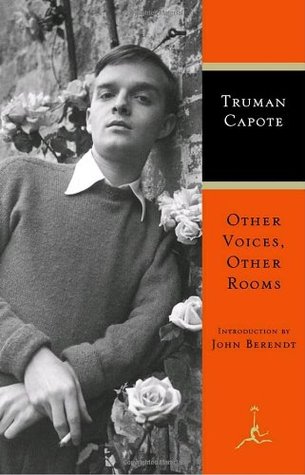
 Other Voices Other Rooms – Truman Capote originally published by Random House in 1948, I’ve read the First Vintage International edition 1994, 231 pages.
Other Voices Other Rooms – Truman Capote originally published by Random House in 1948, I’ve read the First Vintage International edition 1994, 231 pages.
This book comes to me from the other side of my library, the literary tomes on my reading’s ‘to do’ list. One of Truman Capote’s earliest published works and somewhat autobiographical story. The powerful use of voice, each character whole and distinct, Truman has this palette of language the words he uses to convey his story… they are impactful, they hit with a punch that many other authors lack.
The first half in broad brushstrokes really sets the stage. The landscape into which Joel has been transplanted to is described both physical terms in its decaying opulence and excess; and emotionally in its separation and isolation. The second half of this book highlights the pinpoint of little brushstrokes paced where each scene seems crafted for maximum effect… the second half of this book brings a tear to your eye…
Reading Randolph’s story as he recites it to Joel, of how he, Amy (Joel’s stepmother) and Ed Sansom came to live in the house sinking into the bayou and being overtaken by the garden growing uncontrollable is its self a short story wonderfully woven into this fish out of water boy meets world story of coming of age inside a house reminiscent of the manor in the Fall Of The House Of Usher. Published in 1946, I don’t know if Truman Capote is writing of an earlier time, the twenties or the thirties… there is no indoor plumbing nor electricity in the house, though it seems these are in use back in New Orleans where Joel was living with his mother.
Though not specifically a mystery in the traditional sense, there are elements that do stand out. Initially, where is Joel’s father? Since he was the one who sent for Joel, why does he not make himself known? And who is the mysterious woman that Joel sees in a window of the old house? Where is she hiding now? will Joel escape his confinement of solitude or will he wind up making a room of his own within this asylum…
Joel let his face reveal neither relief nor gratitude: to obscure emotion was becoming for him a natural reflex; it helped him sometimes not to feel at all. Still there was one thing he could not do, for there is no known way of making the mind clear-blank, and whatever he obliterated in daytime rose up at night in dreams to sleep beside him with an iron embrace. As for reading to his father, he’d made an odd discovery: Mr Sansom never really listened: a list of prices recited from a Sears Roebuck interested him, Joel had found by experiment, as much as any wild-west story.
